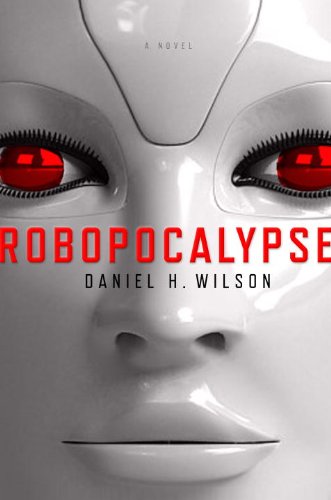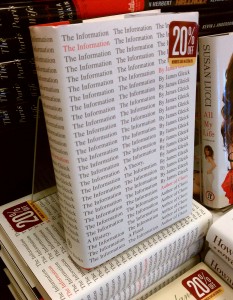 The last thing I expected from a post-zombie-apocalypse novel was a book both literary and enthralling, but that’s what The Reapers Are The Angels delivers. The writing is excellent and the characters well developed, rooting around through the ruins of our civilization looking for something more than survival, but playing the hands they’re dealt in the meantime.
The last thing I expected from a post-zombie-apocalypse novel was a book both literary and enthralling, but that’s what The Reapers Are The Angels delivers. The writing is excellent and the characters well developed, rooting around through the ruins of our civilization looking for something more than survival, but playing the hands they’re dealt in the meantime.
Temple, the young girl the story follows, has ghosts to bury that are all too zombie-like, refusing to lay down and die, but her fierce will to survive and ability to find beauty in the darkest places make her a match for the worst life can throw at her. The story is more disturbing than delightful, but so it goes in the land of grown ups.
Temple is a post-zombie-apocalypse teenager, but this is no YA title. Born after things changed, she’s never lived in a world where shambling undead corpses didn’t roam the streets looking for their traditional diet. Raised in an orphanage and now traveling somewhat randomly across an America populated sparsely by survivors and less so by the ever present “slugs”, Temple has lived too much for her fifteen years, carries too many ghosts around insider her, and knows with a deep conviction that she’s committed unforgivable sins.
How old are you? he asks. Fifteen, she says, taking a chance on the truth and the fatherly instincts of the man in the cap. Fifteen! You’re too young to be wanderin the countryside. Too young by a mile. I tried to be older, she says. But it’s somethin that’s hard to force. He chuckles and rubs his eyes and looks out over the shrubby verge to the river below and then back at her. What you got behind your back? he asks. She reveals the gurkha knife, holding it up to show him. What were you planning on doin with that? If you turned out to be trouble, I was gonna kill you with it. The old man looks at her with eyes still as toad ponds in the aftermath of a storm when the air is gluey with ozone. Then he begins to laugh.
Speaking of sin, Christianity is as omnipresent in The Reapers Are The Angels as it is absent in Neil Gaiman’s American Gods, which is one of the things that ring true about the story. Not a Bible-thumping, crusading, Christianity, but one just part of the fabric of folks’ lives, there to offer a reference point for those trying to carry on after the dead began to rise from their slumber and the old world ground to a halt.
Most zombie stories take place during or soon after the emergence of the hordes, but the basic paradigm has now become sufficiently entrenched in the culture that movies like Zombieland and Book of Eli can begin to address the longer view, which is what this book gives us a look at. We never find out what caused the change, but since the story isn’t about how we’re going to reverse it, or engineer a way out of the crisis, including it would have just undermined the reader’s belief in the world author Alden Bell has created.
Temple comes from the first post-change generation, and as folks are reluctant to bring children into a world where the dead won’t stay down, she’s possesses rare qualities, youth and beauty among them. The first is only skin deep, and the second of no great value to her, since she’s a determined loner. Unfortunately it makes her a magnet for the wrong sort of person, and she winds up killing a would-be rapist at an enclave she thinks she might have liked staying at for a while. That option no longer looking likely, she helps herself to some of their weapons cache, takes a car from their yard, and heads out on her own again.
Trouble takes after her, in the form of Moses Todd, brother of the man she’d killed, determined to settle a blood score even though he figures his brother had it coming. This theme of commitment to the forms of moral action in the face of a world that no longer keeps score makes the reader wonder who the real zombies are, the pathetic slugs, or the hopeless humans? For Temple’s part, she knows that her life is without meaning, having failed at the one mission that might have given it form, but she’s wired for survival and the thought of giving in to despair never occurs to her.
The main characters here are Temple and Moses, though along the way Temple acquires a traveling companion, a “dummy” named Maury that she meets on the road and takes in tow. Maury is a stand-in for the brother she lost, and though she’d like to hand him off to someone else, some part of her recognizes a chance at redemption and won’t let go.
Trying to deliver Maury to relatives whose address are scribbled on a piece of paper in his pocket she can’t read takes her on a ramble through the deep South and over to Texas, which explains some of the Christian overtones in the book. Moses dogs her heels everywhere she goes, but accepting his judgment and retribution isn’t something she’s eager for, though her moral sense informs her that she has it coming.
The world of The Reapers Are The Angels shows a world where the lights are mostly on, but there’s pretty much nobody home. The handful of people who managed to keep from becoming zombie–fare or shambling undead themselves have the stockpiled resources of a nation of Wal-Marts to live off of, and unlike stories rooted in biosphere collapse or atomic war, the cost of survival is little more than keeping in motion, one step ahead of the undead. That the inexorable march of the “meatskins” will overrun them seems the expected future for most, but while there’s life there’s a need for something, not quite hope, that keeps the survivors moving, and readers turning the pages until the end.

 [/amazon_link]
[/amazon_link] The last thing I expected from a post-zombie-apocalypse novel was a book both literary and enthralling, but that’s what The Reapers Are The Angels delivers. The writing is excellent and the characters well developed, rooting around through the ruins of our civilization looking for something more than survival, but playing the hands they’re dealt in the meantime.
The last thing I expected from a post-zombie-apocalypse novel was a book both literary and enthralling, but that’s what The Reapers Are The Angels delivers. The writing is excellent and the characters well developed, rooting around through the ruins of our civilization looking for something more than survival, but playing the hands they’re dealt in the meantime.